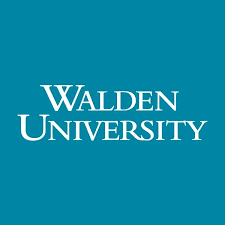
Abstract
In this issue of Higher Learning Research Communications (HLRC), our guest author, Dr. Ned Strong, explains why Harvard University opened the David Rockefeller Center for Latin American Studies in Santiago, Chile and how this center contributes positively to Harvard’s goal for international engagement. Strong illustrates how the center has established collaborations with universities and other organizations in the region (which includes Argentina, Chile, Bolivia, Peru, and Uruguay) expanding academic and research opportunities for faculty and students through the establishment of programs and funding opportunities.Also, in this issue, we have the great pleasure of introducing research conducted by international faculty, university administrators, and others in the field of higher education. The common goal of all the research presented here is the improvement of the teaching-learning process and the enhancement of the student learning experience. Relevant topics in higher education such as program evaluation and development, curriculum assessment and improvement, among others, are discussed.Transformation of tourism and hospitality education means the application of new educational approaches. In the first article, Goh proposes an integration of two educational models with the objective of promoting scholarship among tourism and hospitality institutions in Australia. Through a description of the current model of teaching, and the introduction of an integrated alternative model in tourism and hospitality, the author provides tools and activities that can be incorporated by educators into their teaching protocols and the curriculum.Harris, Martin and Martin studied a topic of much importance for counselor education programs: how to improve the wellbeing of counseling students in training to enhance professional competence. The participants of the study rated themselves in areas related to psychological well-being, personal growth, self-acceptance, among others. The authors analyzed the results of the self- evaluations and provide recommendations on how educators and program administrators could evaluate and improve wellness in counseling students and the implications of psychological wellness in the professional practice of counselors.In a study aimed at determining readiness and potential for program accreditation, Loushine tested a curriculum assessment method to assess the curricula of two safety degree programs, specifically, if the components of the curricula align with the knowledge requirements for the professional practice of occupational safety. The author explains how the exercise of evaluating the curricula, including obtaining feedback from faculty and students, proved to be an effective tool to identify strengths and weaknesses in the programs and an outstanding resource for program improvement. Kam and Hoop evaluated an interaction-guided approach in science courses offered entirely online to elementary and middle school teachers in a Master’s degree program. The researchers studied how an inquiry-based, hands-on model encourages interaction among learners in science courses and how that ultimately results in collaborative learning in the online environment and development of tools and skills that could be useful for educators.The Editors
Recommended Citation
Editors, T.
(2013).
Editorial.
Higher Learning Research Communications, 3 (2).
Retrieved from https://scholarworks.waldenu.edu/hlrc/vol3/iss2/6






